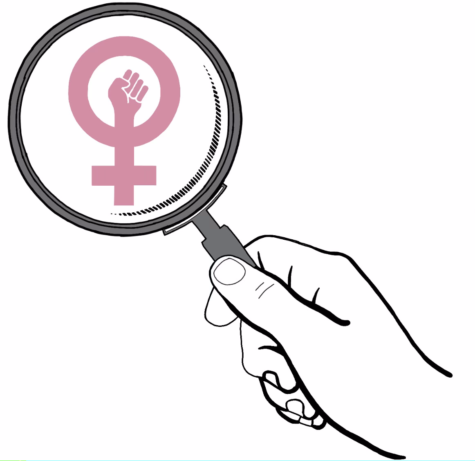Clare Daniel on feminism
March 22, 2023

With Women’s History Month in full swing, it is important to honor women’s achievements while acknowledging women who have not been given the same opportunities. Some women are not given the same chances to make impressive advancements in fields they are passionate about. More importantly, they aren’t given the opportunity to enjoy the same rights as other humans. This month, and every month, women should be appreciated for their societal contributions.
Female professors make up 36% of Tulane’s pool of undergraduate professors, while female students make up 59% of the student body. This disparity is one of many reasons why female professors should be recognized for their contributions to the Tulane community.
Clare Daniel Ph.D is an administrative associate professor of women’s leadership and assistant director of community engagement in the Newcomb Institute. She conducts feminist research and is a self-described feminist.
“Feminist” has become a controversial, seemingly radical term. But, it is broad and inclusive and speaks to one’s worldview rather than their identity. Daniel defines feminism as both a “foregrounding of the lens of gender as it intersects with race, class, sexuality and various other identity categories” as well as “a way to analyze the world and identify structural inequalities” while actively “advocating for the elimination of those inequalities.”
Daniel identified as a feminist even before college where she minored in women and gender studies. After college, she spent two years working in the welfare system where she gained a new perspective on the punitive aspects of welfare. In her career, she noticed a disproportionate amount of single female parents as opposed to single men in the context of poverty. She noticed that these women were being coerced into low-wage labor and often denied their rights to privacy and bodily autonomy. Interpreting this reality through a feminist lens, Daniel was able to better understand the gender dynamics at play.
Daniel attended graduate school where she began researching the U.S. welfare system and its origins. Researching legislative debates that led up to the passage of the policy that instantiated Temporary Assistance to Needy Families, Daniel noticed a shared belief across party lines — poor parents must be disciplined. She notes that this fueled efforts to create a punitive welfare system, a theory she developed further in her masters thesis. Her dissertation focused on how teen pregnancy has changed over time and how it has contributed to the marginalization of impoverished people.
Daniel has since completed more research on reproductive justice and continues to engage in feminist communities through her coordination of the Feminist Summer Internship and the Reproductive Rights and Reproductive Health Internships program, both of which opened applications for summer positions on Friday, March 10.
Daniel states “although feminism is about using a gendered lens, it’s not necessarily only about women and not necessarily only for women.” Feminism can be used to evaluate masculinity. People of all genders can be feminist researchers and activists.
As an instructor and professor, Daniel notes that her job is not to persuade, but “presenting information and opportunities to think critically.” She argues that it is vital to recognize the progress made regarding gender equality but at the same time recognize that not all women benefit from that progress in the same ways. Daniel said, “It is hard to talk about [equal rights for women] in general terms, because women are not a monolithic group, so some women maybe are closer to having equal rights to men and other women are much further away.”
Daniel stresses that the recent overturning of Roe v. Wade is a concrete example of how “if you have a uterus, you are in a class of humans that does not enjoy the same rights.” This plays into the importance of out-of-state Tulane students being educated on feminism. Daniel notes that, “for students who come from California and New York,” for example, “it is important for them to get the education really fast about what it means to be a sexually active person in Louisiana versus the state they come from.” This is one of the reasons Daniel developed her TIDES course, Reproductive Politics in New Orleans, or TIDES-1023.
While Daniel has focused most of her feminist research on reproductive justice, she acknowledges that much more can be said about the need to be educated on feminist issues in general. She also stresses the fact that reproductive justice issues should not be considered primarily feminist issues but rather human rights issues.
Daniel has found her feminist research rewarding. She admires the culture of mentorship and collaboration in her field, as well as the people she surrounds herself with, who all share a similar commitment to human rights and social justice. She also notes the focus in feminist research on understanding one’s identity and how it impacts research. Daniel says that being a feminist researcher “allows me to live my values more.”
Daniel encourages students interested in learning about feminism and feminist activism to take Intro to Gender and Sexuality Studies, or GESS 2900. She also recommends joining the Feminist Alliance of Students at Tulane — FAST — and reading “Feminism is For Everybody” by bell hooks.






















Leave a Comment